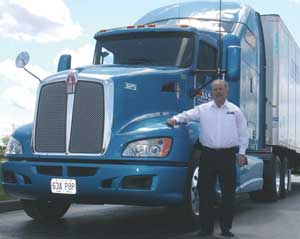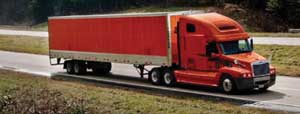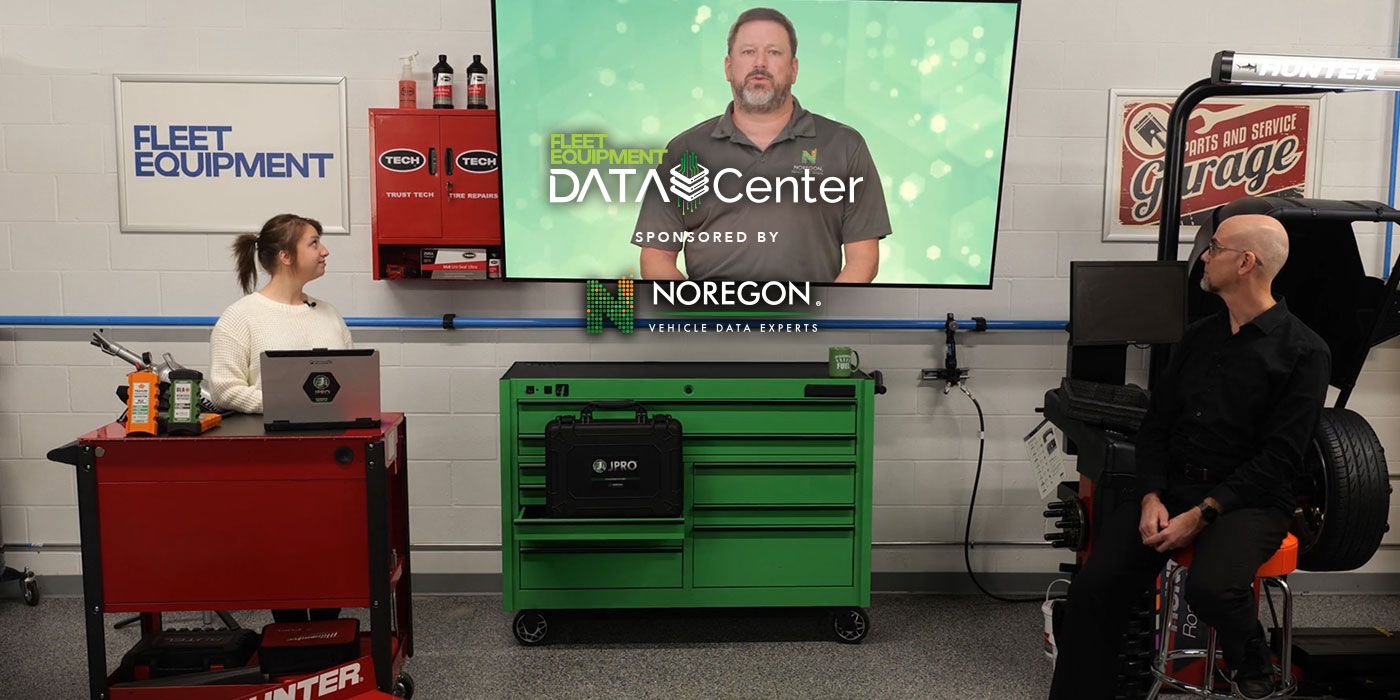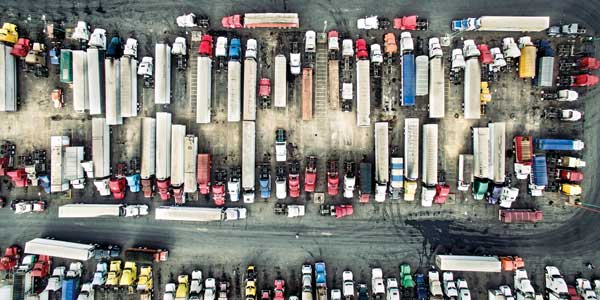“Our efforts to improve fuel economy over the last three or four years are generating a savings over $22 million annually. A couple of things should be remembered, however. First, we run many independent contractors and their savings are calculated in the total. Also, the prices of our trucks have increased significantly during that same time frame. Increased fuel efficiency, fortunately, is helping us offset these expenses,” said Corey England, executive vice president at C.R. England Global Transportation, a fleet that has long been concerned with fuel efficiency.

C.R. England, of course, operates a lot more tractors than most fleets, but when you consider the average improvement for each unit, the savings is still significant. Fortunately, it’s a savings available to any operator. “Fleet owners who purchase or lease SmartWay tractors know they are using the cleanest, most fuel-efficient equipment available,” claims a promotion for the SmartWay Partnership.
And is there any knowledgeable fleet manager not interested in fuel efficiency? Certainly, a growing number of fleet operators understand that fuel-efficient operations have become a necessity. Kenworth, for example, sees advanced aerodynamic packages becoming popular. “I think, in general, the trucking community has understood how advanced aerodynamics can provide a significant payback to the bottom line. SmartWay specs are an excellent starting point for obtaining these aerodynamic benefits,” said Erik Johnson, on-highway marketing manager for Kenworth Truck Co.
All manufacturers offer over-the-road tractors that meet the voluntary SmartWay technical specifications and qualify for use of the U.S. EPA Designated SmartWay mark when they include certain aerodynamic, engine, wheel and tire specifications. For example, a high roof sleeper tractor must also be equipped with aerodynamic mirrors, an aerodynamic bumper, fuel tank fairings and cab side extenders.
All highway tractors need to be powered by a 2007 or newer certified engine, have low rolling resistance tires and should be fitted with lightweight aluminum disc wheels.
Kenworth’s T660 is just one example of a SmartWay tractor model that is delivering users fuel-efficient service. “With the T660, we’re getting two-tenths of a mile per gallon better fuel economy over the competitive, like-spec’d trucks we tested,” said Mike Walker, president of Springfield, Mo.-based TCSI-Transland.

Fleet tests pay off
Some of the larger fleets have been involved in efforts to save fuel long before SmartWay was established. “Most of the equipment that we’ve run in the past would have qualified for SmartWay certification even before we applied to be a Partner. We are running energy-efficient tires and all of the aerodynamic devices on the trucks so that we can get the most fuel-efficient vehicles on the road. Another activity we’re currently engaged in is SAE fuel testing. In these, we test one component against another; for example, an aerodynamic options versus another aerodynamic option. We believe we have a pretty good handle on the various options that help us have better fuel economy,” said England.
Clearly, the fleet’s efforts are paying off. He said, “We’ve hit 7 MPG as a fleet average and feel pretty good about that. It wasn’t that long ago when we were in the low sixes. There have been some dramatic improvements in equipment in recent years. The new selective catalytic reduction (SCR) engines that we’ve recently added to our fleet have contributed to our improved fuel economy. But there is a caveat to that. In addition to fuel, we also have to purchase diesel exhaust fluid. All told, however, the results are quite staggering when you look at the impact these new engines have had.”
Schneider National is another fleet with a long history of running lean equipment. Steve Duley, vice president of purchasing for the fleet, said, “We have a history of being concerned about fuel consumption. As an irregular route truckload carrier, our trucks run a lot of miles with heavy loads in high cube trailers. They’re the kind of vehicles that consume a lot of fuel, so fuel economy has always been a major part of our cost structure. It’s always been important for us to have competitive costs, so we’ve always tried to manage the fuel cost. In more recent years, these practices have fit right in with the need to lower emissions.”
Over the years, Schneider learned the importance of aerodynamics, the rolling resistance of tires and frictional losses through the drivetrain. Aerodynamics, a major parameter addressed in SmartWay tractors, is the largest impact at speeds over 50 MPH, and since Schneider is an over-the-road operator running a high mileage, aerodynamics has always been important to the company. Duley said, “More recently, there’s not much low-hanging fruit left, so we’ve been going after possible savings with other items like the weight of the engine oil we use. We’ve also gone to synthetic lubes for the drivetrain. Recently, we started putting wheel covers on tractors and skirts on trailers because of the impact they have on air resistance.”
Like other leading fleets, both C.R.England and Schneider work with their suppliers to find small items that might result in truck designs offering improved fuel efficiency. Duley said, “How the air moves around the tractor as well as through the engine compartment, for example, makes a difference. Before we decide on what tractor we buy, we’ll do fuel testing and integrate the results of that testing into our overall decision.”
Help from lessors
The mobile assets of leasing companies, of course, make up some of the largest fleets on the road today. The best of this industry segment do much more than simply supply equipment to fleets or owner operators because it is to their advantage to make sure that their customers are financially successful. So if you’re a fleet manager that leases your equipment, make sure you take advantage of your lessor’s experience in spec’ing fuel efficiency into vehicles.
For example, Ryder System Inc. has integrated environmental policies into its business processes for over 20 years. Scott Perry, the company’s vice president of supply management, said, “Ryder is a SmartWay Carrier partner for its company-owned vehicles, a Logistics Partner for its supply chain operations and an Affiliate Partner for its truck rental and leasing activities.”
According to the company, its experience allows it to offer best-in-class vehicle technologies, maintenance and fueling services, in addition to the latest fuel and vehicle emission technologies that ensure maximum performance and fuel efficiency and reduced emissions.
Perry said, “We are focused on understanding the customers’ needs and their intended use of a specific vehicle. Each application may well translate into a different spec, depending upon what might be best for that particular customer application. That, of course, includes the side we see for maintenance costs and they see for fuel economy. We find our customers to be very receptive to our recommendations. They respect our long-term experience with regard to performance and reliability.”
SmartWay tractors are available through the company’s RydeGreen SM line of line haul tractors and trailers, designed to reduce fuel consumption and greenhouse gas emissions. Its RydeGreen SM Hybrid is a medium-duty straight truck that has the potential to provide up to 30% to 40% improved fuel efficiency in standard in-city pickup and delivery applications.
The company also offers training for drivers, as well as insight into driver habits. Perry said, “We often hear 30% to 40% of the fuel economy is controlled by the driver—idle time, jack rabbit starts, time in top gear. We have a telematics solution, called FleetCare, which helps managers understand what drivers are doing.” This tool provides customers with immediate web-based access to fleet data, providing transportation managers the information they need to analyze trends and recognize opportunities for increased efficiencies.
Specs are not absolute
While the use of SmartWay specs will guarantee a fuel-efficient vehicle, even the best fleets, those running in the 7 MPG range, are not necessarily married to SmartWay specs. Schneider’s Duley said, “We don’t follow all of SmartWay’s recommendations but do agree with the majority of the program’s recommendations. We believe it’s our responsibility to make sure we understand how the recommendations will work in our operation, making sure they are cost beneficial for us. The wheel covers we use, for example, are not on the SmartWay list, but our data show they are effective. While we’re not limited to the SmartWay list, we consider it to be very good tool.”
While every fleet manager should be concerned with fuel efficiency, not too many fleets have the financial resources to conduct their own fuel economy testing. With that said, any fleet manager who does not consider SmartWay recommendations when he’s putting together specs for new tractor purchase is missing a good bet.


